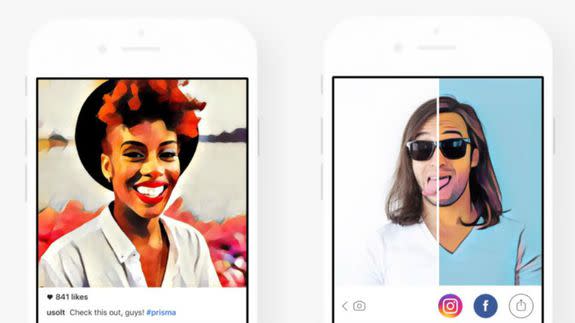Prisma speeds up its app by moving its neural network magic

Prisma, the app that lets you turn regular photos into beautiful artworks with a single tap, now works offline.
Since the app uses neural network-based tech to apply its photo filters, it has so far required an internet connection. The required computing power was simply too great. And some of the work needed to be offloaded to remote servers.
Now, Prisma has managed to implement the neural network tech into its iOS smartphone app, which should make it much faster.
SEE ALSO: Prisma on Android is now available for everyone
How much faster? Well, it depends on how powerful your smartphone is. Prisma tells users it'll take 2.5 seconds for an iPhone 6S to process a photo, and 3 seconds for an iPhone 6 to do the same. Previously, it could take anywhere from 2 to 10 seconds for the app to apply a filter. When the company's servers were clogged up by requests, this time sometimes extended to unbearable lengths for many users.
The news has other far-reaching implications, Prisma says. First, the company claims its technology will enable other apps to implement neural networks on smartphones. Mashable has asked whether that means the company will offer some sort of service to tech peers, but the answer was no. Prisma clarified that the sheer fact they've accomplished this feat will inspire other companies to strive toward it.
Furthermore, Prisma says the app can now be used as a benchmark for smartphone speed. How this would work is unclear, too
Prisma CEO Aleksey Moiseyenkov told Mashable the app will "probably add a special mode...in the near future," without disclosing any further details.
Also down the Prisma road is video support, which was announced in July.
UPDATE: Aug. 23, 2016, 9:15 p.m. CEST Prisma has reached out to us to explain that only about half of its filters will be working in offline mode at launch, with support for the other half coming in the "near future."

 Yahoo News
Yahoo News 